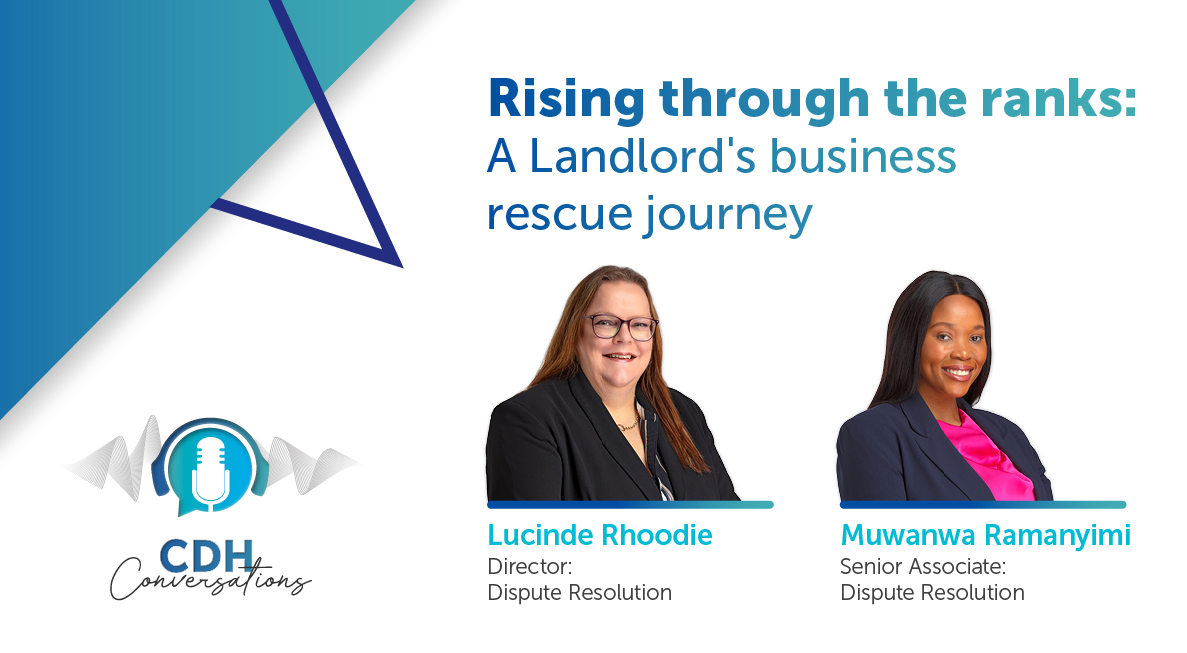“Keep off the grass – Regards, Management” Insight into the private use of cannabis and consequences thereof in the workplace
At a glance
- The Constitutional Court ruling in the Prince case effectively legalized the private cultivation, use, and possession of cannabis for personal consumption by adults in private places.
- The legislative landscape governing cannabis use remains uncertain, with delays in finalizing the Cannabis for Private Purposes Bill.
- Employers must navigate the issue of cannabis use by employees, considering their obligations under the Occupational Health and Safety Act and existing alcohol and substance abuse policies, which may require a zero-tolerance approach.
Prince effectively legalised the private cultivation, use and possession of cannabis for private purposes, by adults, in private places, for personal consumption. For more information on the Constitutional Court judgment, cannabis and its current legislative treatment see our article, South Africa’s Green Gold.
Since Prince, the legislative landscape governing cannabis use has remained somewhat uncertain. This is also compounded by the delay in finalisation of the Cannabis for Private Purposes Bill which, inter alia, seeks to regulate the private consumption of cannabis.
Cannabis, “the whole plant or any portion or product thereof”, is a substance which is currently listed as an “undesirable dependence-producing substance” in Part III of Schedule 2 to the Drugs and Drugs Trafficking Act 140 of 1992 (Drugs Act). However, the Drugs Act contains an exception for lawful use and possession of cannabis in section 4(b)(iv) to (vi), which includes the use and possession of cannabis if it has been obtained in a “lawful manner”.
Cannabis use under the Medicines Act
Cannabis is also regulated as a scheduled substance in terms of the Medicines and Related Substances Act 101 of 1965 (Medicines Act) and the Regulations under it.
The general position is that it remains illegal to buy and sell high-cannabinoid containing cannabis or cannabis products except under a license granted by the South African Health Products Regulatory Authority (SAHPRA) under the Medicines Act. However, section 21 of the Medicines Act enables patients to purchase and use unregistered medical cannabis products for legitimate, therapeutic purposes through an application made to SAHPRA by a registered medical practitioner on the patient’s behalf. This process has been significantly streamlined and can be completed through online submissions by the registered medical practitioner.
Accordingly, cannabis is legally capable of being acquired and consumed for medical reasons as well as cultivated and consumed in private, by adult persons, for any other reason.
This has understandably left many employers wondering how to treat cannabis use by employees in light of their obligations in terms of the Occupational Health and Safety Act 85 of 1993 (OHSA), the Employment Equity Act 55 of 1998, and their existing internal alcohol and substance abuse policies, which often advocate for a “zero-tolerance” approach towards substance abuse.
General Safety Regulation 2A of the OHSA, stipulates that an employer may not allow any person who is or who appears to be under the influence of an intoxicating substance, to be allowed access to the workplace.
Using cannabis while at work
As the Commission for Conciliation Mediation and Arbitration confirmed in Moodley and Clover SA (Pty) Ltd (2019) 40 ILJ 2857 (CCMA), an employee who consumes cannabis while at work may be dismissed. Here, the employer had a zero-tolerance policy towards employees being under the influence of drugs or alcohol at the workplace and the employee’s job required him to enter any division on the site, including some that operated large or dangerous machinery. It was part of Moodley’s job function to “police” other employees’ compliance with the employer’s policies. Moodley who previously underwent two months of drug rehabilitation, had allegedly been smoking cannabis at work while in a company motor vehicle. He underwent a urine test which confirmed high levels of tetrahydrocannabinol (THC). Witnesses had also testified to the smell that emanated from the vehicle as well as to the employee’s behaviour upon emerging from the vehicle.
However, when it comes to cannabis, the position becomes less clear as available testing methods for the presence of cannabis often do not distinguish between immediate use and use which occurs well outside of working hours.
At this point, it is worthwhile noting that the provisions of the Protection of Personal Information Act 4 of 2013 will apply when requesting employees or job applicants to make disclosures regarding their health as part of their medical records or records obtained as a part of a pre-employment medical questionnaire, examination or various drug or alcohol tests. Therefore, an employee’s consent may be mandatory, and it is debatable as to whether an employer may rely completely on a contract of employment as a basis upon which to process special protected information.
Unlike alcohol, cannabis may remain present in an individual’s system for several days or weeks after usage and can be present for months in chronic users, even though it might not affect individual work performance.
The question then becomes, can an employer dismiss an employee for having consumed cannabis outside of work, for medical reasons or otherwise?
Cannabis use outside of work
In the recent case of Enever V Barloworld Equipment, A Division of Barloworld South Africa (Pty) Ltd [2022] ZALCJHB 161 (1 June 2022) the Labour Court dealt with this question in the context of an employer with a zero-tolerance alcohol and substance abuse policy. Enever was employed as a category analyst by the respondent from 11 April 2007 until she was dismissed on 30 April 2020. The position of a category analyst was described as a typical office position which did not constitute a safety-sensitive job in that she did not have to operate heavy machinery or drive any of the respondent’s vehicles.
On 29 January 2020 Enever was requested to do a urine test, which came back positive for cannabis. On the same day she was informed that she was unfit to work and was requested to leave the premises. She was immediately placed on a seven-day “cleaning-up process” which entailed that testing would be repeated on a weekly basis until she was cleared by testing negative. At the time of undergoing the urine test, Enever was neither impaired nor suspected of being impaired in the performance of her duties. She was also not performing any duties for which the use of cannabis would be said to be a risk to her own safety or that of her colleagues. Enever was also not in possession or suspected of being in possession of cannabis whilst at work. She was dismissed on account of repetitively testing positive for cannabis and accordingly being in breach of the respondent’s alcohol and substance abuse policy. Her claim was that her dismissal was automatically unfair, and that the respondent’s policy discriminated against her on arbitrary grounds.
Enever alleged that she suffered from migraines and anxiety, and she had a problem sleeping. She testified that she had used several types of prescribed pharmaceutical drugs but, in light of the Prince judgment, she had gradually moved away from consuming pharmaceutical pills to using cannabis oil and smoking rolled cannabis as an alternative. The court held that her evidence regarding her medical condition was unsubstantiated. Enever also alleged that she used cannabis recreationally by smoking rolled cannabis every evening to assist with insomnia and anxiety. This allegedly also improved her bodily health, outlook and spirituality. She testified that smoking cannabis made her feel closer to God, which also assisted in her quest to address internal struggles.
The importance of employers’ policies
The Labour Court held that while everyone is entitled to use cannabis in their own space and for recreational purposes, in the same way everyone is entitled to consume alcohol in their own private space and time, this does not mean that the respondent would have to take cognisance of the fact that the consumption was in the employee’s private space and time should they happen to test positive. The respondent led evidence that, owing to the highly dangerous operations on its premises, it had a zero-tolerance approach to working under the influence of alcohol or drugs. The Labour Court agreed with the respondent that, considering its dangerous environment, it is entitled to discipline and dismiss any employee who uses cannabis or is under the influence while at work, as this is in contravention of its policy.
Ultimately, the Labour Court held that the fact that an employee is not impaired to perform duties does not in itself absolve that employee from misconduct in terms of the employer’s policy. As a result, the issue in this case was related to misconduct more than performance. This is because the respondent has a rule in the form of its alcohol and substance abuse policy which the applicant was at all material times aware of, but still proceeded to breach.
In conclusion, it is clear from the Enever judgment that while cannabis is legally capable of being consumed in private, employees can still be dismissed for misconduct if it is in contravention of their employer’s generally binding rules in the form of an alcohol and substance abuse policy or otherwise. However, should the employee have legitimate, medical reasons for consuming cannabis, then they should engage with their employer and produce expert, medical evidence that substantiates their condition and determine whether their usage of cannabis falls afoul of the employer’s operational constraints or existing policies. On the facts of this the court also was not prepared to find that Enever was unfairly discriminated against by the Respondent.
It is recommended that employers review their substance abuse policies to align with the evolving regulatory environment applicable to cannabis use, especially considering the provisions of the Draft Cannabis for Private Purposes Bill. While an employee who has used cannabis outside of their workplace may potentially be disciplined for breaching policy, if the basis for that policy is to regulate the workplace and private use of cannabis by employees outside of work does not materially affect their performance or the workplace, then it falls to reason that exceptions may be made on that basis.
The information and material published on this website is provided for general purposes only and does not constitute legal advice. We make every effort to ensure that the content is updated regularly and to offer the most current and accurate information. Please consult one of our lawyers on any specific legal problem or matter. We accept no responsibility for any loss or damage, whether direct or consequential, which may arise from reliance on the information contained in these pages. Please refer to our full terms and conditions. Copyright © 2026 Cliffe Dekker Hofmeyr. All rights reserved. For permission to reproduce an article or publication, please contact us cliffedekkerhofmeyr@cdhlegal.com.
Subscribe
We support our clients’ strategic and operational needs by offering innovative, integrated and high quality thought leadership. To stay up to date on the latest legal developments that may potentially impact your business, subscribe to our alerts, seminar and webinar invitations.
Subscribe



